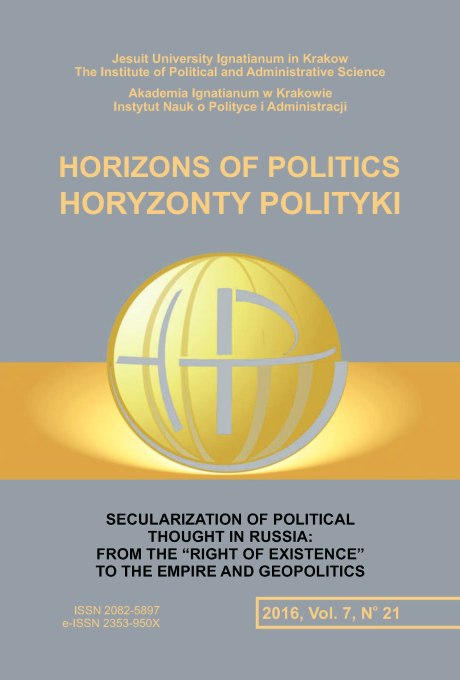The Narrative of the Modernized Regulatory State
The Narrative of the Modernized Regulatory State
Author(s): Noralv VeggelandSubject(s): Politics / Political Sciences, Politics, Governance
Published by: Uniwersytet Ignatianum w Krakowie
Keywords: Administrative reform;network;privatization;risk policy;democratic deficits;
Summary/Abstract: RESEARCH OBJECTIVE: Scholars have formulated a wide definition with reference to societal values. Phillip Selznick (1985, p. 363) has, for instance, provided an uncritical understanding of regulation that is of particular relevance. He states that the central meaning of regulation “...refers to sustained and focused control exercised by a public agency over activities that are valued by a community.”THE RESEARCH PROBLEM AND METHODS: The research problem is to analyze of regulation of the societal values according different scholars. This statement is critical followed up in this paper.THE PROCESS OF ARGUMENTATION: According to Selznick, the emphasis on valued communal activities is important because the regulatory effort helps to uphold public standards, ethics and norms. He underestimates, in the early phase of the 1980s, the power concentration proceedings by the upcoming of the regulatory state in the Western domain. In the paper this process is analyzed in terms of empirical facts.RESEARCH RESULT: The research result published in the paper is that in its widest sense, we may define regulation and its implementation by the government as the totality of all mechanisms of social protection and control. We find bureaucracy and democratic deficit as embedded consequences of this type of governance.CONCLUSIONS, INNOVATION AND RECOMMENDATIONS: According to the theory of the regulatory state, the task of research is to present national and international “narratives” of different institutional arrangements and the practice of regulatory governance. Alongside this approach, there is the view of networking theory that emphasizes the study of political economics. Taming of the undemocratic power of the regulatory state issue will be essential for future politics. Besides too much regulation is an obstacle to innovation.
Journal: Horyzonty Polityki
- Issue Year: 7/2016
- Issue No: 21
- Page Range: 99-118
- Page Count: 20
- Language: English

